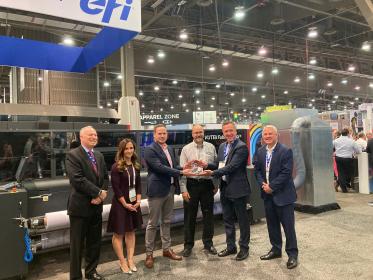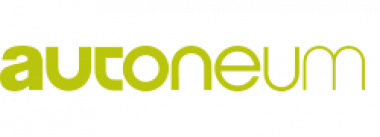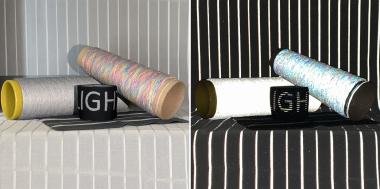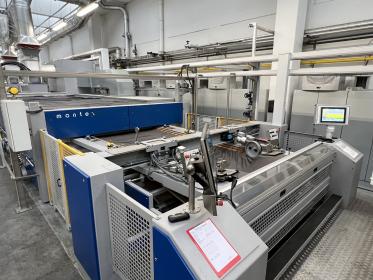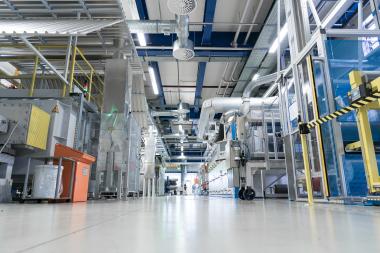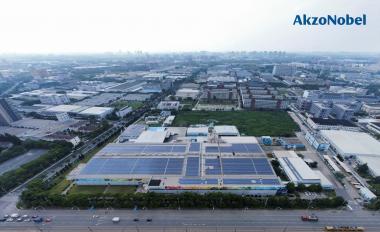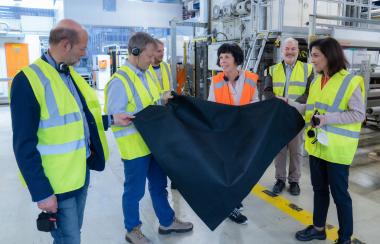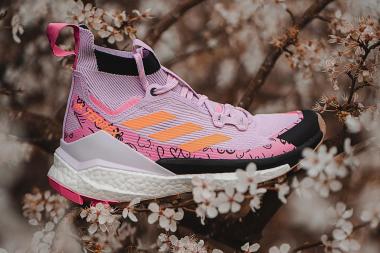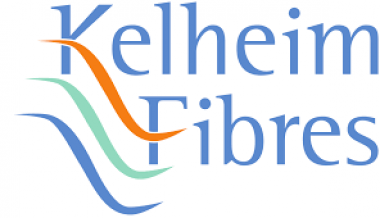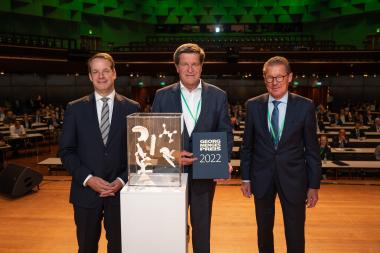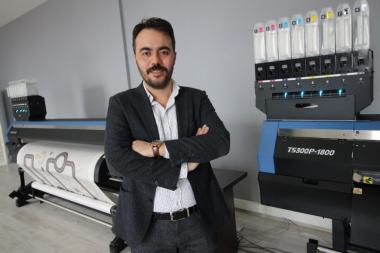EFI sells 300th VUTEk FabriVU Printer
Orbus Exhibit & Display Group® has continued its substantial and longstanding relationship with digital print technology provider Electronics For Imaging, Inc., choosing the premium-quality capabilities of the EFI™ VUTEk® FabriVU® 340+ soft signage printer to meet surging demand for dye-sublimation soft signage graphics. The new printer now running at Orbus’s Las Vegas facility marks an important milestone for EFI, as it is the 300th EFI VUTEk FabriVU printer installed worldwide.
Orbus is North America’s top trade manufacturer of soft signage and flag graphics for tradeshow exhibits, promotional displays, experiential retail and corporate interiors. The company is one of the largest users of EFI soft signage printers worldwide. The newly installed FabriVU 340+ model joins two additional FabriVU printers at Orbus Las Vegas. The company has its fourth FabriVU printer at its headquarters facility, along with a pair of high-volume EFI industrial printers used exclusively for dye-sublimation production.
The upgraded performance comes courtesy of the VUTEk FabriVU 340+ printer’s new, eight-printhead, CMYK x 2 array, along with new electronics for reliable and consistent premium-quality output of exhibit graphics, backlit graphics, retail fixture wraps, front lit graphics, block-out banners and fabric interior decor. A flag printing kit on the printer easily handles porous media in high-penetration applications by collecting inks without touching the rear side of the media.
As with all VUTEk FabriVU printers, it prints both transfer paper and direct-to-fabric.
EFI


